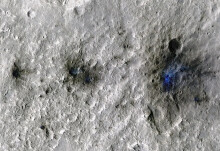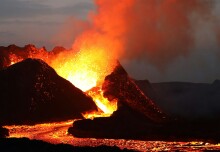

Critical materials
Lithium needed for the battery revolution could be harvested from lakes
Lithium can be harvested efficiently from brines thanks to an innovative membrane developed at Imperial.



Lithium needed for the battery revolution could be harvested from lakes
Lithium can be harvested efficiently from brines thanks to an innovative membrane developed at Imperial.


Researchers launch second attempt to drill deep for Antarctic climate clues
Researchers are departing on a 1128 km journey over ice to the edge of the West Antarctic Ice Sheet, in search of critical geological records.


Researchers trace zinc fingerprints through time in search of life’s origin
Researchers have used the chemical fingerprints of zinc contained in meteorites to determine the origin of volatile elements on Earth.


Geothermal technology could help decarbonise the UK's heating and cooling
Geothermal technology has the potential to cut emissions by up to 94% for cooling and 41% for heating in the UK compared to other low-carbon systems.


Study finds limits to storing CO2 underground to combat climate change
Imperial research has found limits to how quickly we can scale up technology to store gigatonnes of carbon dioxide under the Earth’s surface.


Study reveals where and when Antarctic ice sheet first formed
Combining unique geological samples with sophisticated modelling has led to insights into when and where today's Antarctic ice sheet formed.


Surprising meteorite impact rate on Mars can act as ‘cosmic clock’
Seismic signals have suggested Mars gets hit by around 300 basketball size meteorites every year, providing a new tool for dating planetary surfaces.


Climate change can ‘supercharge’ rivers, increasing flood risk and land damage
Rivers are vital for wildlife and people's livelihoods, but they are threatened by climate change and extreme weather.


SWAIS2C core workshop offers first glimpse of sediment from below Ross Ice Shelf
Sediment cores retrieved from Antarctica’s Siple Coast by an international team co-led by Imperial College London were opened at a recent workshop.


Clues from deep magma reservoirs could improve volcanic eruption forecasts
New research into molten rock 20km below the Earth’s surface could help save lives by improving the prediction of volcanic activity.